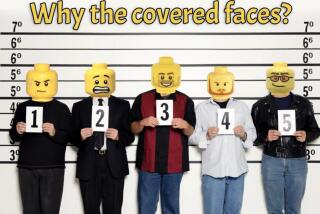Texas court throws out part of ‘upskirt’ photo law
The top criminal court in Texas has struck down part of a law banning “upskirt” photos, becoming the latest state to try to define the line between constitutionally protected speech and personal privacy.
The Texas ruling, involving photos at a water park of swimsuit-clad females, including children, is at least the second state court to weigh in on the propriety of taking pictures in public spaces. In March, Massachusetts’ Supreme Judicial Court ruled that state law does not protect women’s privacy from a man with a cellphone who snapped upskirt photos on a Boston trolley.
“I think the central issue here is the expectation of privacy in a public place,” Gene Policinski, chief operating officer of the Newseum Institute and senior vice president of its First Amendment Center, told the Los Angeles Times on Friday. “With new technology, we have to redefine what is privacy in the public square. Fifty years ago upskirting wouldn’t have been an issue. Now we have cellphones and tiny cameras that make these photos easy. Laws will have to address this.”
Massachusetts lawmakers came back with a revised law to protect privacy, and authorities have already made some arrests under it. The new law is more specific, making “the secret photographing, videotaping, or electronically surveilling of another person’s sexual or other intimate parts ... a crime,” punishable by up to 2¿¿ years in jail or a fine of up to $5,000.
The Texas law, part of the penal code, prohibits improper photography or visual recording “with intent to arouse or gratify the sexual desire of the defendant,” according to the court. It was that provision of arousal that became an important part of the court’s decision because of the questions of how to determine what is in a defendant’s mind.
In the Texas case, Ronald Thompson was accused of 26 counts of violating the state law, including several that refer to images of “unknown female[s] with various colors of bathing suits or bikinis ‘in’ or ‘at’ a water park.” Some of the images reportedly involved children.
After he was charged, Thompson filed a pretrial motion to drop the charges on the grounds that prosecution was “unconstitutional in violation of the 1st Amendment.” A trial court denied the application and an appeals court upheld it. The case went to the Texas Court of Criminal Appeals.
The state had argued that photography is conduct and is not inherently expressive, thus the 1st Amendment does not apply. “Photography is essentially nothing more than making a chemical or electronic record of an arrangement of refracted electromagnetic radiation (light) at a given period of time,” the court papers quote the state’s argument.
But the court rejected that limited vision of photography in an 8-1 ruling released last week.
“The camera is essentially the photographer’s pen and paintbrush,” Presiding Judge Sharon Keller wrote in the majority opinion. “A person’s purposeful creation of photographs and visual recordings is entitled to the same 1st Amendment protection as the photographs and visual recordings themselves.”
Once it had decided photography was protected by the 1st Amendment, the court went on to deal with the question of a photographer’s thoughts. It decided the law couldn’t protect the objects of the photos from the photographer’s thinking.
“Protecting someone who appears in public from being the object of sexual thoughts seems to be the sort of ‘paternalistic interest in regulating the defendant’s mind’ that the 1st Amendment was designed to guard against,” Keller wrote. “We also keep in mind the Supreme Court’s admonition that the forms of speech that are exempt from 1st Amendment protection are limited, and we should not be quick to recognize new categories of unprotected expression.”
“The Texas law seems to be overly broad,” said Policinski, separating conduct, which can be punished, from the thoughts of the person charged. “The pattern in these cases has been for the legislators to come back when a court rules and draw a narrower law.”
Follow @latimesmuskal for national news
More to Read
Start your day right
Sign up for Essential California for news, features and recommendations from the L.A. Times and beyond in your inbox six days a week.
You may occasionally receive promotional content from the Los Angeles Times.







